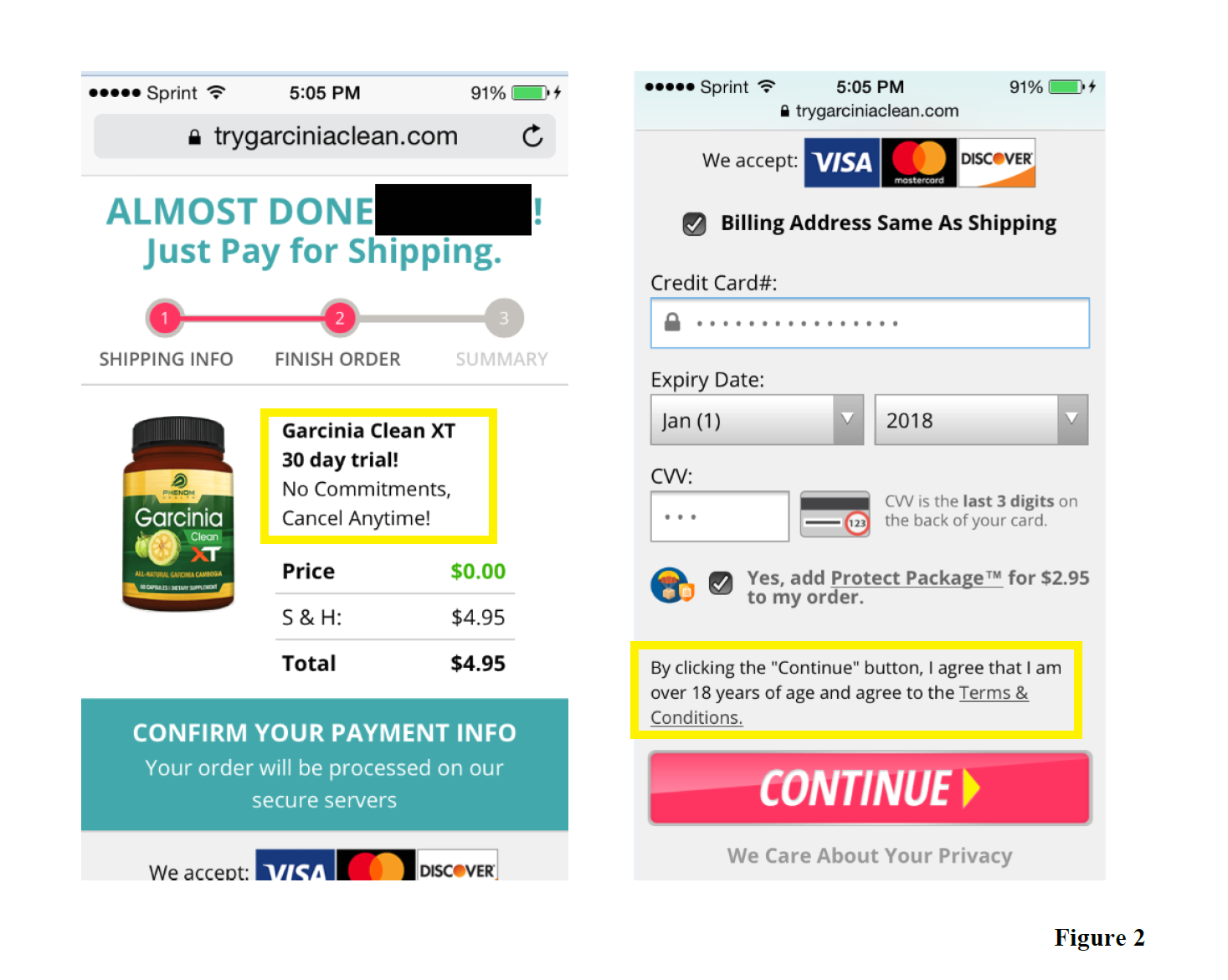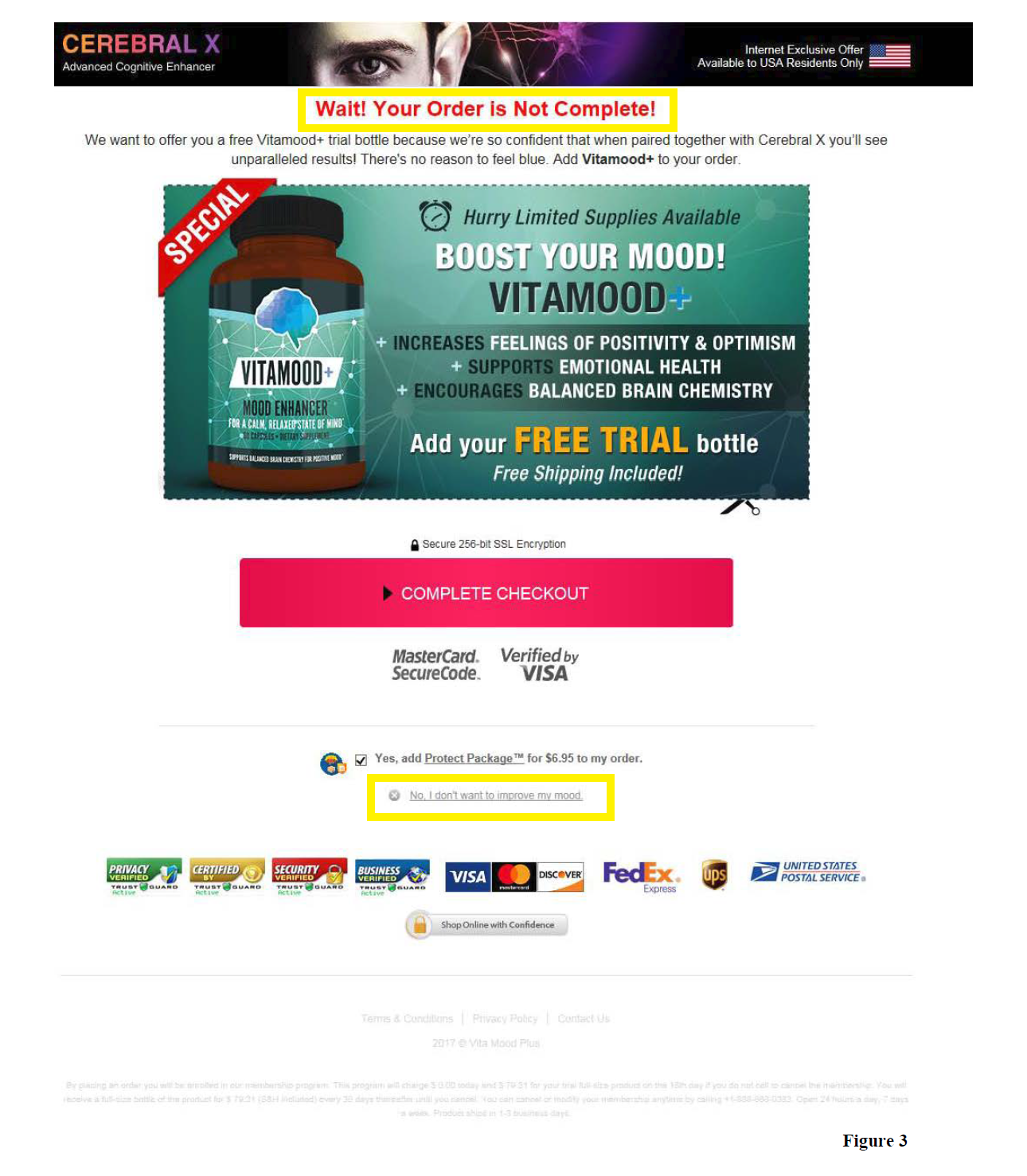TRIANGLE MEDIA: NUTRACEUTICALS AND DECEPTIVE ADVERTISING
The FTC filed a lawsuit against three business entities (Triangle Media Corporation, Jasper Rain Marketing LLC, and Hardwire Interactive Inc.) and one individual (Brian Phillips) regarding online sales of nutraceuticals. The FTC alleged six counts against the defendants including misrepresentations of the price of the trial offer, misrepresentation that the order is not complete, failure to disclose adequately the material terms of the trial offer, unfairly charging consumers without authorization, violation of ROSCA, and unauthorized debiting from consumers’ accounts. This post will review the main causes of the counts against the defendants – deceptive advertising, the failure to cancel subscriptions, the failure to process refunds.
Deceptive Advertising
Deceptive advertising led to the counts for misrepresentation of the price the trial offer and the failure to disclose adequately the material terms of the trial offer. The counts are supported by the risk-free trial language and the attempt to hide the terms and conditions of the trial and subscription. In Figure 1, I’ve placed a yellow box around the faint grey terms and conditions at the bottom of the page (Figure 2 shows the mobile version of checkout). It’s easy to overlook due to the size and color. The $4.95 total as well as the “Risk-Free Trial” language on the page also adds to the belief that the consumer is not going to be charged the full price in 15 days and then every 30 days thereafter. The company at least has a hyperlink to the terms and conditions but the FTC sees the faint grey font used as an attempt to hide the terms and conditions from consumers.
FIGURE 1:
FIGURE 2:
In addition, deceptive advertising led to count for misrepresentation that the order was not complete. After appearing to purchase the initial product, the defendants’ website deceptively notifies the consumer that their order is not complete and it stated that the consumer should add an additional product to their purchase. In Figure 3, I’ve placed a yellow box around the “Order is not complete” statement as well as the “No, I don’t want to improve my mood” link. This offer was initially deceptive because the first order was actually completed and processed. By clicking the faint grey “No, I don’t want to improve my mood” link, a consumer would think that they are declining the additional product. According to the complaint, the “No, I don’t want to improve my mood” link took consumers to additional deceptive ads for similar products.
Figure 3:
Failure to cancel subscriptions and provide refunds
The defendants failed to cancel subscriptions and provide refunds leading to counts for unfairly charging consumers without authorization and the violation of ROSCA. Consumers reported having a difficult time getting in touch with customer service on the phone and online. Then, even if consumers cancelled their subscription, they continued to be charged. In addition, when consumers sent back unopened products, the defendants claimed that it never received the shipment. Some consumers were able to get refunds by complaining to the Better Business Bureau. The defendants did an extremely poor job with customer service especially when it came to cancelling subscriptions.
ISOs need to be aware of the enforcement actions against nutra businesses so they can underwrite and monitor accordingly. This case teaches ISO’s that they should be aware of the advertising regulations for their e-commerce merchants. With that knowledge, the ISO’s should do their best to police their merchants by reviewing their websites and purchases processes prior to approving a merchant account.


